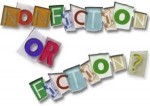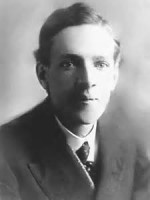 I had a friend a few decades ago who spurned fiction. He claimed he didn’t need to read things that were made up – that life contained enough drama. Besides, he declared, only in the reading of non-fiction can we learn from our errors and discover ways to make change.
I had a friend a few decades ago who spurned fiction. He claimed he didn’t need to read things that were made up – that life contained enough drama. Besides, he declared, only in the reading of non-fiction can we learn from our errors and discover ways to make change.
As a writer of fiction, this troubled me. Was I just too lazy to find real stories to write about? Did I not have the ability to find the drama in day-to-day stories that lay in the headlines?
Well, yes and no.
I do lack the ‘reporter’s instinct’ that allows many non-fiction authors to find the human interest side of a story. Also there’s the lack of ability and time it takes to dig out all the facts and get to know all those real-life people. Sometimes I read a headline and wonder about the story that WASN’T told. Or wonder what would have happened IF…
When Alice confronted one of the Queens in Through the Looking Glass about truthful things, the Queen replied that if SHE had said it, it was true. ( I wonder if many of our reporters these days think the same way…) So, fiction can be OUR truth – can’t it? But we know when we invent things. Sometimes we just do it for a reason.
And fiction does make a difference in the world. Sometimes small differences, like increasing someone’s awareness or helping them through hard times. Last year in his newsletter, Time to Write, Jurgen Wolff http://jurgenwolff.com/ told of how one writer had almost given up writing until she found out one of her readers had a moving reaction to one of her stories. Without that, she said, she would have pursued another career.( I actually saved that article, but when I went to find it to reference it, I couldn’t. Sorry – but it still makes a point…)
Fiction has its place in history, also. A simple example would be the novels of Jules Verne, which gave us nuclear submarines and space travel long before they were in the minds of most people. People scoffed at his imagination, and yet – here we are! Do you wonder if his work made a few budding scientists lean toward the development of these things? Did some kid say to himself, “I wonder if that’s possible…”
In the early 1900’s the fiction of Upton Sinclair turned the world on its ear. The Jungle, published in 1906, was based on the meat-packing industry and its troubles. That book, deemed ‘political fiction’, contained enough truths to create a Federal investigation which resulted in the development of the Food and Drug Administration. In 1919, he published The Brass Check – another politically charged work that exposed yellow journalism and the issues of free press in the United States. Four years later, the code of ethics for journalists was created.
Sinclair did have a reporter’s instincts, and worked undercover in these industries to learn about them, but chose to use fiction as his medium. (In my mind, this is the safest way to go – when challenged over a fact, one could simply say “Oh, I made that part up. It IS fiction, you know,” and then grin like the Cheshire cat.) Still, Sinclair made enemies – but also won the Pulitzer Prize for Fiction.
With all this in mind, I’m confident that all forms of literature are valuable and create impact. Whether you just want to tell a story about an incident, or the human condition, or make someone laugh or cry, you can touch lives.
It’s a daunting thought, isn’t it?






I also have a friend who doesn’t read fiction for much the same reason, but I love it. Sometimes we just need to escape from all the news, and often in the course of reading, we learn some things along the way. I think you’d be good at research if you were a journalist. This post contains quite a lot of it.